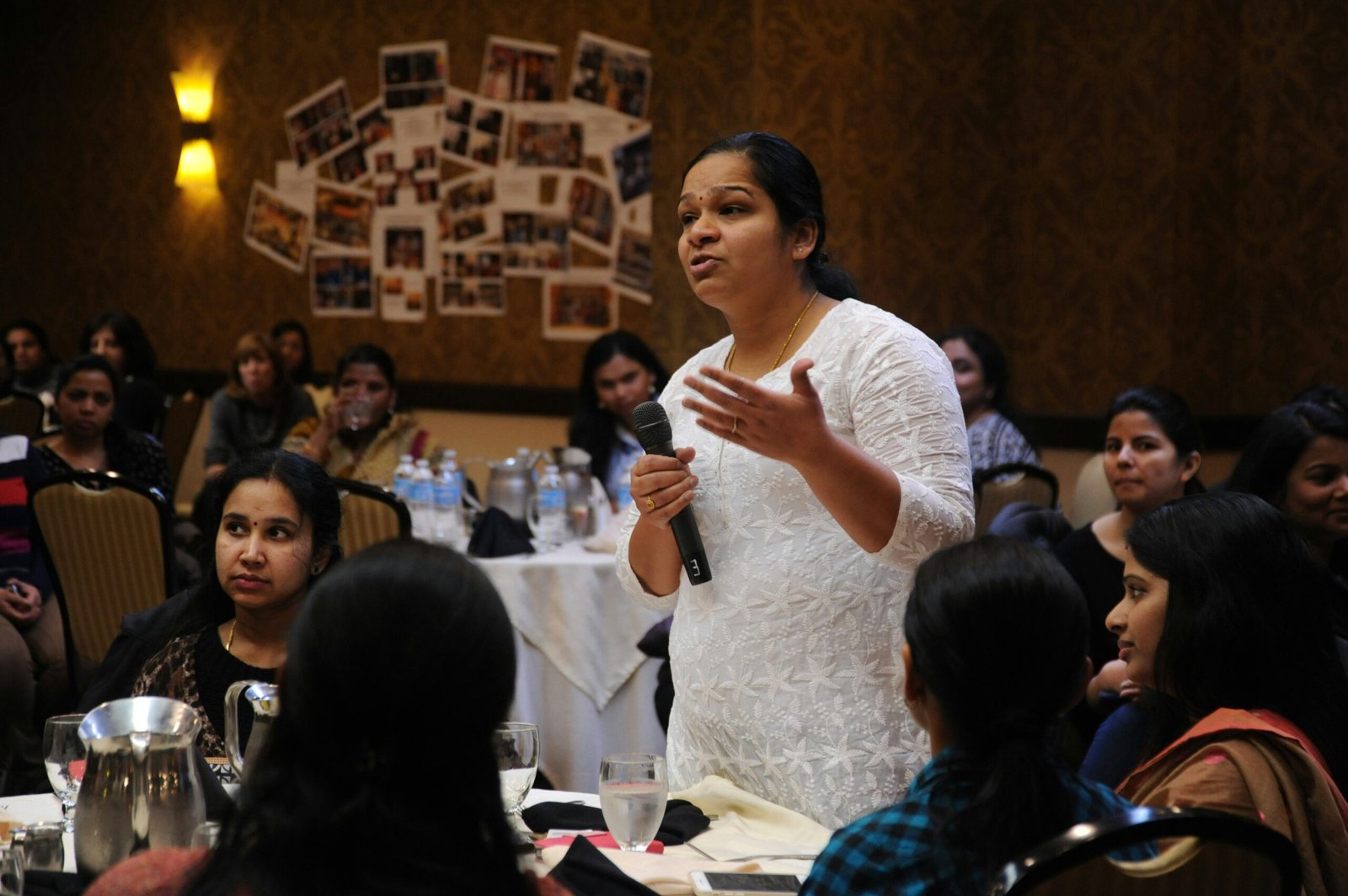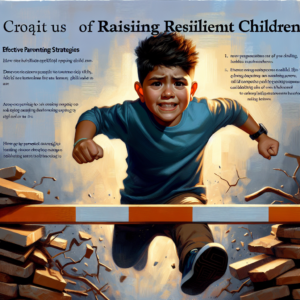In today’s busy world, it can be challenging to find time to connect with your children and build strong relationships with them. However, it is crucial to prioritize these bond-building moments, as they contribute to your child’s overall well-being and development. By understanding their needs, actively listening to them, and finding common interests, you can create deeper connections that will last a lifetime. In this article, we will explore simple yet effective ways to strengthen the relationship with your children and foster a strong and loving connection.

- Importance of Building Strong Relationships with Your Children
- Effective Communication
- Quality Time and Bonding Activities
- Setting Boundaries and Rules
- Showing Unconditional Love
- Positive Discipline Strategies
- Resolving Conflicts and Building Resilience
- Modeling Healthy Relationships
- Supporting Their Individuation Process
- Nurturing Their Emotional and Mental Well-being
Importance of Building Strong Relationships with Your Children
building strong relationships with your children is crucial for their overall development and well-being. As a parent, you play an essential role in creating a solid foundation on which your children can thrive. By nurturing a strong bond with them, you provide them with a sense of security, love, and stability, which are key ingredients for their emotional and social growth.
Creating a Solid Foundation
Creating a solid foundation in your relationship with your children is the first step in building a strong connection. This involves being present and available for them both physically and emotionally. Take the time to engage in meaningful conversations, listen to their thoughts and feelings, and show genuine interest in their lives. By prioritizing their needs and being consistently responsive, you communicate to your children that they are valued and loved unconditionally.
Promoting Emotional Well-being
Promoting emotional well-being is another essential aspect of building strong relationships with your children. Encouraging them to express their emotions and listening without judgment fosters a sense of trust and openness. Letting them know that it is safe to share their thoughts and feelings with you helps them develop healthy emotional regulation skills and enhances their overall mental wellness.
Developing Trust and Respect
Building trust and respect is crucial for a healthy parent-child relationship. Trust is earned through consistent actions and demonstrating reliability. Be true to your word and follow through on the commitments you make to your children. Additionally, treating them with respect, honoring their opinions, and involving them in decision-making processes, helps create a positive and mutually respectful atmosphere.
Effective Communication
Effective communication is key to building strong relationships with your children. It involves both verbal and non-verbal aspects that allow you to understand each other better and strengthen your connection on a deeper level.
Active Listening
Active listening plays a vital role in effective communication. When your children speak, give them your undivided attention, maintain eye contact, and engage in active listening techniques. Reflecting back what they say, paraphrasing, and asking open-ended questions show that you value their thoughts and opinions. This fosters a sense of trust and encourages them to be more open with you.
Open and Honest Dialogue
Open and honest dialogue is essential for maintaining healthy communication with your children. Encourage them to express their thoughts and feelings, even if they may be different from yours. Create a safe space where they feel comfortable discussing any topic without fear of judgment or punishment. Be respectful and genuinely listen, allowing them to voice their thoughts freely.
Non-Verbal Communication
Non-verbal communication, such as body language, facial expressions, and gestures, can speak volumes in your relationship with your children. Be aware of your non-verbal cues and ensure they align with your verbal messages. This will help your children feel more understood and connected to you.
Quality Time and Bonding Activities
Spending quality time with your children is essential in building a strong and lasting relationship. By engaging in bonding activities, you create opportunities for connection, mutual enjoyment, and shared experiences.
Planning Regular Family Activities
Planning regular family activities allows you to establish a sense of togetherness and create cherished memories. Whether it’s a family game night, a movie night, or a weekend outing, these activities provide you with dedicated time to bond with your children. Make sure to involve them in the decision-making process to promote their engagement and autonomy.
Individual Special Time
In addition to family activities, it’s important to have one-on-one time with each of your children. This individual special time allows you to focus solely on them and their interests, reinforcing the uniqueness of your bond. Whether it’s going for a walk, playing a game, or simply having a heartfelt conversation, this dedicated time strengthens your relationship and nurtures their sense of self-worth.
Joint Interests and Hobbies
Exploring and engaging in joint interests and hobbies not only provide opportunities for shared experiences but also help you discover new aspects of your children. Encourage their passions and actively participate in activities they enjoy. It could be anything from cooking together, playing sports, or engaging in arts and crafts. These shared interests foster a sense of camaraderie and create lasting memories.
Setting Boundaries and Rules
Setting boundaries and establishing rules is an important aspect of parenting. Clear expectations and consistent enforcement of these boundaries help children understand limits, develop self-discipline, and learn the concept of responsibility.
Consistency and Clear Expectations
Consistency is key when setting boundaries and rules. Clearly communicate your expectations and consistently enforce them. This provides children with a sense of structure and guidance, enabling them to feel secure and understand the consequences of their actions.
Age-Appropriate Limits
Setting age-appropriate limits is essential for your children’s safety and well-being. Tailor your guidelines to their developmental stage, taking into account their abilities, maturity, and understanding. Adapting your boundaries as they grow helps them navigate the world responsibly while ensuring their emotional and physical safety.
Logical and Natural Consequences
Instead of resorting to punishment, focus on implementing logical and natural consequences when rules are broken. This approach helps children understand the direct consequences of their actions and learn from their mistakes. By emphasizing personal responsibility and accountability, you foster their self-discipline and sense of fairness.

Showing Unconditional Love
Expressing unconditional love is at the heart of building strong relationships with your children. Your words, actions, and attitudes can profoundly impact their self-esteem and emotional well-being.
Expressing Affection and Appreciation
Expressing affection and appreciation regularly reinforces your love for your children. Simple gestures like hugs, kisses, and verbal expressions of love go a long way in making them feel valued and cherished. Additionally, praising their efforts and acknowledging their strengths fosters a positive self-image and encourages them to pursue their passions confidently.
Acceptance and Support
Unconditional love means accepting your children for who they are, without any conditions or expectations. Embrace their uniqueness and celebrate their individuality. Show them that you support and believe in them, even when they make mistakes or struggle. By creating an atmosphere of acceptance and support, you cultivate a strong bond and provide them with the confidence to tackle life’s challenges.
Empathy and Understanding
Practicing empathy and understanding is vital in building strong relationships with your children. Put yourself in their shoes and try to see the world from their perspective. Validate their emotions and let them know that you understand their struggles and challenges. By acknowledging their feelings and providing a safe space for expression, you foster trust and strengthen your connection.
Positive Discipline Strategies
Discipline plays an integral role in shaping your children’s behavior and guiding them towards positive choices. By employing positive discipline strategies, you encourage self-discipline, teach problem-solving skills, and promote healthy conflict resolution.
Encouraging Self-Discipline
Encouraging self-discipline empowers your children to regulate their own behavior and make responsible choices. Help them understand the consequences of their actions and guide them towards making decisions that align with their values. This approach instills a sense of autonomy and self-control, equipping them with vital life skills.
Focusing on Solutions
When conflicts or issues arise, focus on finding solutions rather than dwelling on the problem. Teach your children to brainstorm ideas and collaborate with you to find resolutions that are fair and mutually beneficial. This approach fosters problem-solving skills and encourages them to take ownership of their actions.
Teaching Conflict Resolution
Effective conflict resolution is crucial for healthy relationships. Teach your children how to communicate their needs assertively and listen to others in a respectful manner. Encourage open dialogue and guide them in finding compromises that respect everyone’s viewpoints. By equipping them with conflict resolution skills, you empower them to navigate relationships with empathy and understanding.

Resolving Conflicts and Building Resilience
Conflicts are a natural part of any relationship, and learning how to resolve them is essential for building resilience and maintaining strong bonds with your children.
Active Problem-Solving
When conflicts arise, engage in active problem-solving with your children. Encourage them to express their concerns and suggest solutions. Work together to identify the root causes and explore mutually beneficial resolutions. This process allows them to develop critical thinking skills and reinforces their ability to tackle challenges effectively.
Teaching Conflict Resolution Skills
Teaching your children effective conflict resolution skills equips them with the tools to navigate disagreements in a constructive manner. Model healthy communication strategies, such as active listening, compromising, and finding win-win solutions. By demonstrating these skills, you provide them with valuable role models and strengthen their conflict resolution capabilities.
Fostering Emotional Intelligence
Resolving conflicts also involves fostering emotional intelligence. Help your children identify and understand their own emotions and those of others involved in the conflict. Encourage empathy, promote perspective-taking, and teach them how to regulate their emotions effectively. By nurturing emotional intelligence, you equip them with the skills needed to handle conflicts with empathy and compassion.
Modeling Healthy Relationships
As a parent, you are a crucial role model for your children when it comes to relationships. They observe and learn from your behaviors, attitudes, and interactions with others. Modeling healthy relationships can greatly impact their own relational skills and future interactions.
Being a Good Role Model
Being a good role model means demonstrating healthy relationship skills in your interactions with others. Show respect, kindness, and patience in your relationships with your partner, family, and friends. By modeling healthy communication, conflict resolution, and empathy, you provide your children with a positive template for their own relationships.
Demonstrating Mutual Respect
Respect is a fundamental aspect of any healthy relationship. Teach your children the importance of mutual respect by consistently treating them, as well as others, with respect. Avoid belittling, demeaning, or dismissive behaviors. By fostering an environment of respect, you cultivate trust and encourage your children to build respectful relationships of their own.
Handling Conflict Positively
Conflict is a natural part of any relationship, and how you handle it sets an example for your children. Instead of avoiding or escalating conflicts, demonstrate healthy conflict resolution skills. Model effective communication, active listening, and compromising techniques. By showing them that conflicts can be resolved positively, you teach them valuable skills for their own relationships.
Supporting Their Individuation Process
Supporting your children’s individuation process involves nurturing their independence, respecting their opinions and choices, and encouraging self-discovery.
Encouraging Independence and Autonomy
Encouraging independence and autonomy is crucial for your children’s personal growth. Allow them to make age-appropriate decisions, take on responsibilities, and experience the consequences of their choices. By providing a supportive environment for independent thinking and decision-making, you foster their self-confidence and self-reliance.
Respecting Their Opinions and Choices
Respect your children’s opinions and choices, even when they may differ from your own. Encourage them to express their thoughts and offer their perspectives. Give them the freedom to explore their interests and passions, supporting their journey of self-discovery and nurturing their sense of identity.
Promoting Self-Discovery
Promote self-discovery by providing your children with opportunities to explore their interests, talents, and values. Encourage them to try new activities, expose them to different experiences, and support their pursuit of personal growth. By nurturing their self-discovery, you instill a sense of purpose and help them develop a strong sense of self.
Nurturing Their Emotional and Mental Well-being
Nurturing your children’s emotional and mental well-being is essential for their overall happiness and success. By fostering positive self-esteem, building resilience, and encouraging openness, you create a foundation for their emotional growth.
Inculcating Positive Self-Esteem
Building positive self-esteem is crucial for your children’s sense of self-worth and confidence. Encourage them to celebrate their strengths, acknowledge their achievements, and embrace their imperfections. Provide them with validation and support, emphasizing that their worth goes beyond external accomplishments. By cultivating positive self-esteem, you equip them with the resilience needed to navigate life’s challenges.
Building Resilience and Coping Skills
Life inevitably brings challenges and setbacks, and building resilience is essential in helping your children bounce back from adversity. Encourage them to develop problem-solving skills, emphasize the importance of perseverance, and teach them healthy coping strategies. By providing them with the tools to face challenges head-on, you foster their emotional well-being and fortitude.
Encouraging Openness and Seeking Help
Promote openness and encourage your children to seek help when needed. Create a safe space where they feel comfortable discussing their emotions, concerns, and struggles. Teach them that asking for help is a sign of strength, not weakness, and that seeking support is a healthy way to navigate life’s ups and downs. By fostering openness and a willingness to seek help, you empower them to care for their emotional and mental well-being.
In conclusion, building strong relationships with your children is a journey that requires time, effort, and dedication. By prioritizing effective communication, quality time, setting boundaries, showing unconditional love, employing positive discipline strategies, and modeling healthy relationships, you lay the foundation for a strong and lasting connection. Supporting your children’s individuation process and nurturing their emotional and mental well-being further enriches their development. Remember, your role as a parent is significant, and the relationships you build with your children will influence their entire lives.








